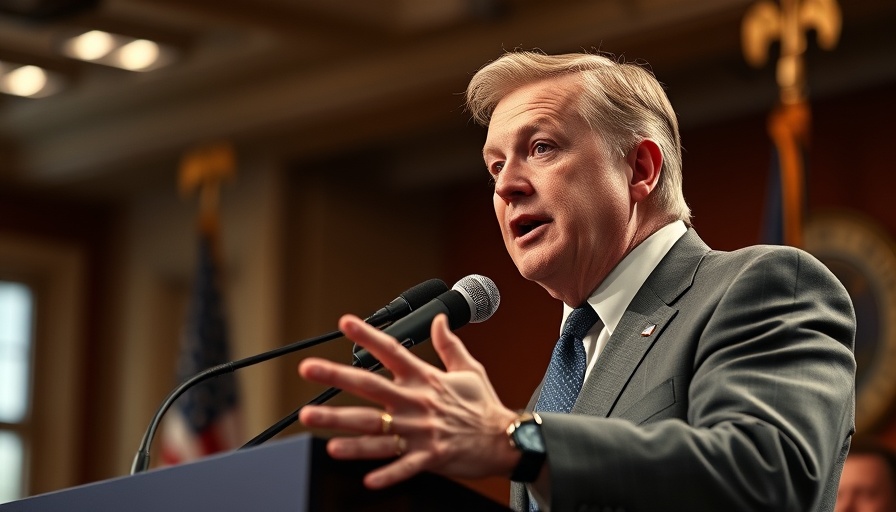
Trump's Tariff Adjustment: A Stunning Shift in U.S.-China Trade Relations
In a notable turnaround, President Donald Trump has suggested that tariffs on Chinese goods should be reduced to 80%. This marks a significant concession in the ongoing trade tensions between the United States and China, which have impacted economies across the globe, including local businesses in Pennsylvania.
In 'Trump says tariffs on China should be lowered to 80%', the discussion dives into the evolving U.S.-China trade dynamics, exploring key insights that sparked deeper analysis on our end.
Trump's latest statement infers a complex balancing act in U.S.-China relations. He believes that lowering the current steep tariffs on Chinese imports—which sit at an eye-popping 145%—could promote increased economic exchanges between the two countries. His assertion places the responsibility on Treasury Secretary Scott Bassant to engage Chinese officials in Switzerland to negotiate these changes, marking an important diplomatic move.
The Implications for America’s Trade Economy
This proposed reduction raises important questions regarding the future of American jobs and economic health. By inviting more Chinese imports into the market, the hope is that this will create a symbiotic trade relationship that benefits both nations. Lower tariffs could potentially lead to lower prices for consumers and help U.S. manufacturers gain access to cheaper materials. However, on the flip side, there is concern among local manufacturers in Pennsylvania that lower tariffs might exacerbate competition with cheaper foreign goods, potentially threatening domestic job security.
A Pennsylvania Perspective: Local Businesses React
For Pennsylvania residents and visitors, this tariff discussion is more than just a national headline; it affects communities directly. Local manufacturers and suppliers, especially in key sectors such as agriculture, manufacturing, and technology, are closely monitoring these conversations. While some may welcome the prospect of more affordable goods, others worry that reduced tariffs could harm local businesses that struggle to compete against large imports.
Historical Context: The U.S.-China Trade War
To understand the weight of Trump’s announcement, it’s essential to consider the backdrop of the U.S.-China trade war that has been at play for several years. This ongoing conflict over tariffs and trade balances has had real impacts on Pennsylvania's economic landscape. From farmers feeling the fallout of retaliatory tariffs to manufacturing sectors facing price surges, the trade war has produced a ripple effect felt across various industries.
Future Predictions: What’s Next for This Administration?
As negotiations unfold, it’s uncertain how these tariff changes will influence relationships not only between the U.S. and China but also among other trade partners. Many economists suggest that a shift toward lower tariffs could be a harbinger of a broader strategy to renegotiate trade agreements that benefit American farmers and manufacturers. For residents in Pennsylvania, understanding these dynamics is crucial as it may influence investment opportunities and economic growth in the near future.
The Bigger Picture: Tariffs and Political Strategy
Trump’s announcement is also a strategic political move closer to the upcoming elections, catching the attention of voters who prioritize economic issues. By addressing tariffs, Trump aims to signal to his base that he is actively working to create a favorable business environment, while also attempting to maintain a more diplomatic approach toward China. Observers will be closely analyzing how this political maneuver shapes perceptions in the crucial swing state of Pennsylvania.
In the wake of these discussions, one thing is clear: the global economy is in flux, and understanding the implications of tariff negotiations can empower residents in Pennsylvania to remain informed and engaged as these events unfold.
 Add Row
Add Row  Add
Add 




 Add Row
Add Row  Add
Add 

Write A Comment